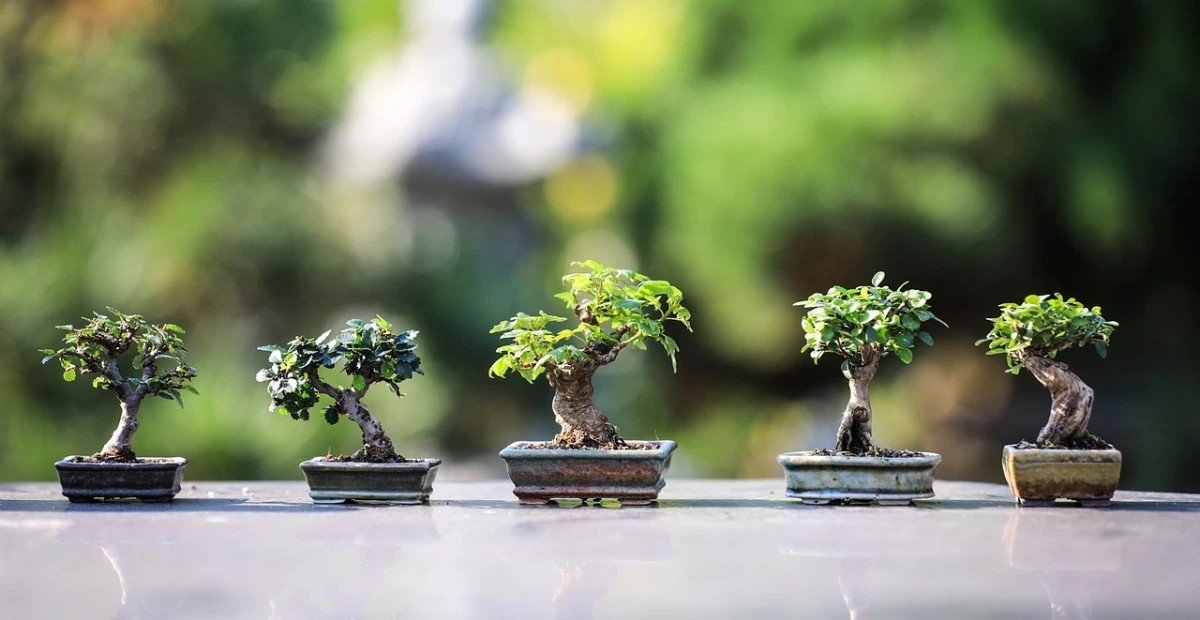Imagine stepping into your backyard, where you can relax without worrying about neighbors peeking in or the noise of the outside world creeping in. With the right trees, you can create your own personal oasis—an area of calm and tranquility where you can truly unwind. Whether you’re hoping to block out the view from nearby homes, reduce street noise, or simply add some greenery to your landscape, the best trees for privacy can make a huge difference.
advertisement
In this article, we’ll walk you through 7 of the best trees to use in your backyard for maximum privacy. We’ll help you choose the perfect tree based on your needs, climate, and the amount of maintenance you’re willing to invest. So, let’s dive into how you can transform your outdoor space into a private retreat!
Table of Contents
Why You Need Privacy Trees in Your Backyard
The Importance of Privacy in Your Outdoor Space
Privacy in your backyard isn’t just about avoiding nosy neighbors; it’s about creating a sanctuary where you can relax and enjoy some quiet time. With more people spending time at home than ever before, especially in their gardens and patios, privacy has become a major factor in choosing the right landscaping.
advertisement
When you add trees to your backyard, you’re not just blocking out unwanted eyes; you’re improving your overall quality of life. The right trees create a natural, beautiful barrier that serves multiple purposes:
- Noise reduction: Trees can help buffer sound from nearby roads or neighbors, making your backyard a peaceful place.
- Security: Privacy trees can act as a deterrent to unwanted visitors, making your property feel more secure.
- Aesthetic appeal: A well-planted privacy screen adds visual interest and enhances the overall look of your garden.
- Wildlife habitat: Many privacy trees attract birds and insects, creating a natural environment in your backyard.
If you’re feeling that your backyard lacks the peace and quiet you crave, or if you want to make it a more secluded spot for outdoor gatherings, planting privacy trees is a smart and effective solution.
How to Choose the Best Trees for Privacy
Key Factors to Consider
Choosing the best trees for privacy requires considering several factors. Not all trees are created equal, so you’ll need to pick the ones that work best for your specific needs. Here are some important things to think about:
advertisement
1. Height & Growth Rate
Some people want privacy quickly, and for that, a fast-growing tree is a must. If you want immediate coverage, you’ll need trees that can grow quickly and reach a height that blocks unwanted views. Trees like Leyland Cypress can grow up to 3-4 feet per year, giving you quick results.
On the other hand, if you don’t mind waiting a few years for your trees to mature, you may want to opt for a slower-growing variety like Eastern Red Cedar.
2. Maintenance Requirements
The amount of time you’re willing to spend on tree maintenance is another factor. Some privacy trees, like Arborvitae, are low-maintenance and require minimal trimming, while others may need more frequent pruning to keep their shape intact.
Before choosing a tree, be realistic about how much time you can commit to caring for it.
3. Climate Suitability
Different trees thrive in different climates. You’ll need to choose trees that can tolerate your area’s weather conditions. For example, evergreen trees like Leyland Cypress work well in a variety of climates, while others like Bamboo thrive best in warmer, tropical regions.
Check the USDA hardiness zone for each tree to ensure it’s suitable for your area.
4. Evergreen vs. Deciduous
One key decision to make is whether to plant evergreen or deciduous trees. Evergreen trees like Arborvitae provide year-round coverage, keeping your space private all year long. On the other hand, deciduous trees shed their leaves in winter, so you might lose some privacy during the colder months.
Consider whether you need privacy all year or whether you’re okay with seasonal changes.
advertisement
5. Aesthetic Preferences
Privacy trees also serve as a visual element in your backyard. While some people prefer a formal, neat look, others like a more natural, unstructured appearance. Depending on your taste, you may choose trees that grow in tight columns or those that spread out in a more casual, wild shape.
Best Trees for Privacy: 7 Top Choices for Your Backyard
Now that you understand how to choose the right tree, let’s dive into some of the best trees for privacy that you can plant in your backyard.
1. Leyland Cypress
- Growth Rate: Fast (3-4 feet per year)
- Height: Up to 60 feet
- Why It’s Great: If you need privacy in a hurry, Leyland Cypress is an excellent choice. This tree is known for its dense, fast-growing foliage, which creates an almost impenetrable screen. It’s ideal for larger properties where you need quick coverage.
- Best For: Large yards or spaces where quick, tall privacy is needed.
- Maintenance Tips: While Leyland Cypress is relatively low-maintenance, pruning is necessary to keep it looking its best.
2. Arborvitae (Green Giant)
- Growth Rate: Moderate to fast (3-4 feet per year)
- Height: Up to 40 feet
- Why It’s Great: Arborvitae, particularly the Green Giant variety, is an incredibly popular choice for privacy. This tree has a narrow growth habit, making it great for smaller spaces, while its dense foliage blocks sightlines from neighbors or passersby.
- Best For: Narrow spaces or where uniformity is desired.
- Maintenance Tips: Arborvitae is easy to care for and requires minimal trimming to maintain its shape.
advertisement
3. Eastern Red Cedar
- Growth Rate: Slow to moderate
- Height: Up to 40 feet
- Why It’s Great: Eastern Red Cedar offers a rustic, natural feel and has the added benefit of being able to tolerate a range of soil and weather conditions. It’s great for wildlife-friendly privacy screening.
- Best For: A more natural, rustic look, and attracting wildlife.
- Maintenance Tips: This tree is low-maintenance and doesn’t require much pruning.
4. Privet
- Growth Rate: Fast
- Height: Up to 12 feet
- Why It’s Great: Privet is an ideal choice if you need quick privacy. This tree (or shrub, depending on how it’s pruned) can quickly form a thick hedge, perfect for blocking out views.
- Best For: Smaller yards or as a low-maintenance hedge.
- Maintenance Tips: Requires regular trimming to keep it neat and well-shaped.
5. Bamboo (Clumping Varieties)
- Growth Rate: Extremely fast
- Height: Up to 20 feet, depending on variety
- Why It’s Great: Bamboo is a unique and fast-growing option for creating privacy. The clumping varieties are non-invasive and create a dense, tropical-looking barrier that adds a modern touch to any garden.
- Best For: Small spaces and contemporary landscapes.
- Maintenance Tips: Make sure to install a barrier to prevent bamboo from spreading.
6. Norwegian Spruce
advertisement
- Growth Rate: Moderate to fast
- Height: Up to 50 feet
- Why It’s Great: Norwegian Spruce provides year-round privacy with its dense evergreen needles. It’s also a great tree for acting as a windbreak or noise barrier.
- Best For: Large yards where you need both privacy and protection from the elements.
- Maintenance Tips: Light pruning to maintain shape is recommended.
7. Holly (American or English Holly)
- Growth Rate: Slow to moderate
- Height: Up to 30 feet
- Why It’s Great: Holly is a classic choice for privacy with its glossy, evergreen leaves and striking red berries in the winter. It offers a formal yet beautiful touch to your garden while still providing excellent privacy.
- Best For: Gardens with an ornamental focus, and for those who want year-round interest.
- Maintenance Tips: Holly trees are easy to maintain, though occasional pruning helps them maintain their shape.
Comparing the Best Trees for Privacy
Privacy Trees Comparison Table
| Tree Name | Growth Rate | Height | Maintenance | Best For |
|---|---|---|---|---|
| Leyland Cypress | Fast | 60 feet | Moderate | Quick coverage for large yards |
| Arborvitae (Green Giant) | Moderate-Fast | 40 feet | Low | Narrow spaces, uniform appearance |
| Eastern Red Cedar | Slow-Moderate | 40 feet | Low | Rustic, wildlife-friendly look |
| Privet | Fast | 12 feet | Moderate | Smaller yards, formal hedges |
| Bamboo | Extremely Fast | 20 feet | Moderate | Small, exotic gardens |
| Norwegian Spruce | Moderate-Fast | 50 feet | Moderate | Large yards, windbreaks |
| Holly | Slow-Moderate | 30 feet | Low | Ornamental beauty & privacy |
advertisement
Additional Tips for Maximizing Privacy with Trees
How to Plant and Care for Privacy Trees
- Spacing: Make sure to space your trees correctly based on their mature size. Overcrowding can lead to competition for resources, while too much space will make your privacy screen ineffective.
- Watering & Fertilizing: Provide deep watering, especially during the first few years of growth. Fertilizing in the spring encourages healthy growth.
- Protection: Young trees should be protected from harsh winds and pests. Use tree guards or netting as needed.
Enhancing Privacy with Layered Landscaping
For even better privacy, consider layering different types of trees, shrubs, and vines. This creates a multi-dimensional barrier that not only blocks sightlines but also adds texture and beauty to your garden. Combine a tall evergreen tree like Arborvitae with low-growing shrubs or flowering vines for a complete privacy solution.
FAQ: Best Trees for Privacy
What are the best evergreen trees for privacy?
Evergreen trees like Leyland Cypress, Arborvitae, and Norwegian Spruce are excellent choices for privacy since they retain their foliage all year.
How fast do trees for privacy grow?
Trees like Leyland Cypress and Bamboo are fast-growing, reaching significant heights in just a few years. On average, fast-growing trees can grow up to 3-4 feet annually.
Are bamboo trees good for privacy?
Yes, clumping bamboo varieties are an excellent choice for privacy due to their rapid growth and dense foliage. However, make sure to control their spread with a barrier.
What is the cheapest tree for privacy?
Privet is one of the most affordable options for creating a privacy hedge, making it an excellent choice for budget-conscious gardeners.
How do I plant trees for privacy?
Ensure proper spacing, water deeply, and protect young trees from extreme weather. Regular pruning will help them stay healthy and maintain their shape.
advertisement
Conclusion: Transform Your Backyard with the Best Trees for Privacy
Creating a private retreat in your backyard is easier than you think with the right trees. Whether you need immediate coverage, year-round privacy, or a more natural look, there’s a tree on this list for every need. By selecting the best trees for privacy and following the tips provided, you can design a tranquil, secluded space that you’ll enjoy for years to come.
Start planting your privacy trees today, and watch your backyard transform into the peaceful oasis you’ve always dreamed of!


